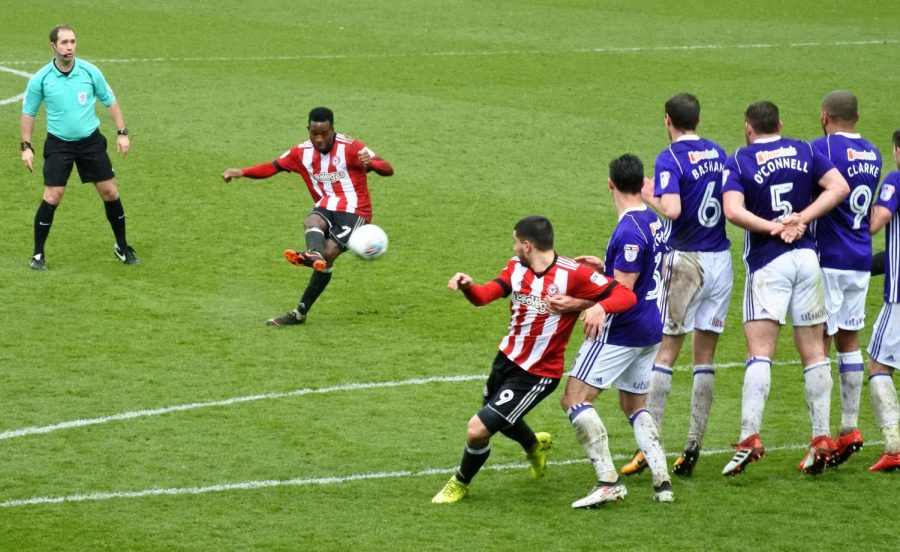The Biggest English Premier League Flop
Photo Credit: Eric Baker
March 26, 2021
Where Sheffield went wrong seems like a mystery. They’ve kept their manager Chris Wilder and most of their key players from the 2019/20 season. It’s clearly not a financial problem, as the club managed to shell out over $68 million last transfer window, although perhaps where they’ve been spending their money has been questionable. Wilder and the front office correctly identified one of their team’s flaws: goal scoring. The Blades only scored 36 goals in 38 games last season. The player they brought in to help bring attacking power to the squad, however, has not panned out like they had hoped. The Sheffield front office spent $28.6 million, a club record fee, on unproven Liverpool youngster Rhian Brewster. Brewster’s made 18 appearances in the Premier League so far this season and has yet to score a goal. He’s only 20 years old, but as a striker that they paid $28.6 million for, that’s not exactly great production.
On top of this purchase, they had to replace loanee Dean Henderson, who was sent back to Manchester United to backup David De Gea. Dean Henderson ranked third among goalkeepers last season in two key statistics. He had 13 clean sheets (shut-outs) and a save percentage of 75.2%. To replace Henderson, Sheffield brought in Aaron Ramsdale for $22.55 million. Statistically, Ramsdale’s performance has not been much less effective than Henderson’s performance. He has a save percentage of 68.1%, which is not that much worse. What does not work in Ramsdale’s favor, however, is a decline in performance from the defenders in front of him. Ramsdale is on track to face over 180 shots on target this season, which is a large number, especially since Henderson only faced 129 last year. This increase in shots on target combined with Ramsdale’s lower save percentage means that Sheffield will let in more goals. This has held true, as after just 24 games they’ve let in 40, which is already four more than they let in all last season.
But what has caused this downturn in defensive form? Tactically, not much has changed with Chris Wilder’s side. Last year, Premier League defenses struggled to deal with Wilder’s innovative “overlapping center-backs,” a style which requires the left and right center-backs to get further up the pitch, playing as wingers, which in turn allows the outside midfielders to cut inside and play more like withdrawn forwards. This style of play requires a 3-5-2 formation and aims to force the opposition to make a decision: either they must drop forwards back to help defend, effectively neutralizing their own attack, or they keep their attackers forward, leaving their defense at a numerical disadvantage. Defensively, the formation acts like a 5-3-2, with the outside midfielders dropping like wingbacks. The three central midfielders then force the opponent to one side and cut off their passing lanes. Unfortunately for the Blades, teams have begun to figure out how to defeat their defensive block. All it takes is a chipped ball over the midfielders or a simple ground pass between them. With teams getting into their final third more often than last season, they are giving up more chances, more shots, more shots on target, and more goals. On top of this, the absence of left center-back Jack O’Connell due to a season-ending knee injury has left a hole in their defense.
This goes to show that clubs like Sheffield who lack the depth of top teams like Liverpool or Manchester City will struggle when they lose several key players, who in fact seem irreplaceable. Perhaps they can be labeled a “one season wonder,” but Sheffield’s drop-off in form is one of the biggest surprises of the 2020-21 Premier League Season.

